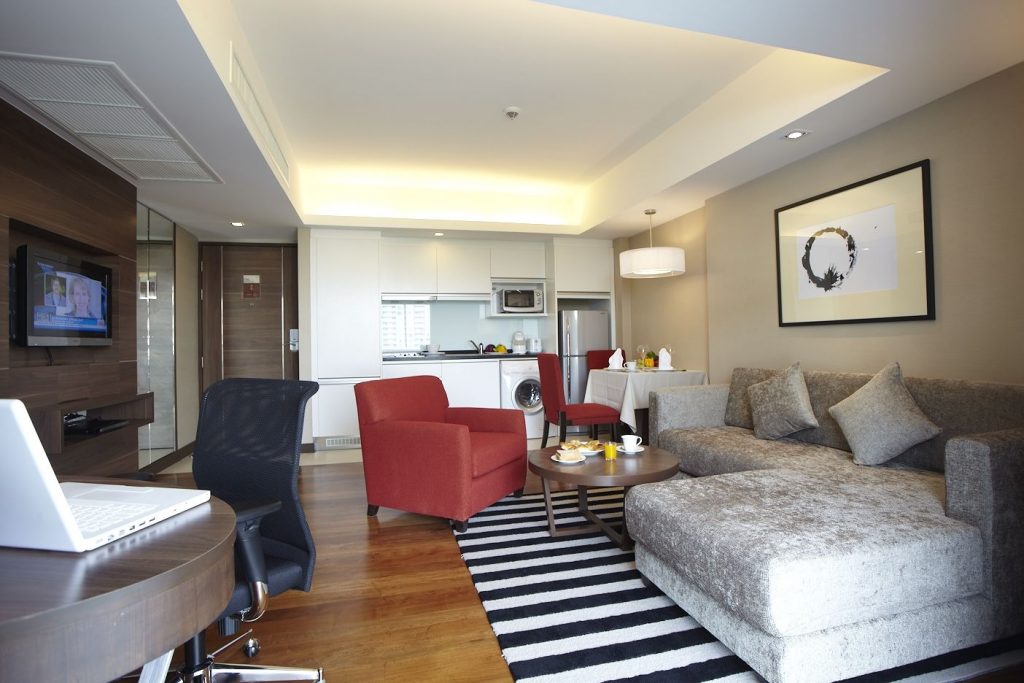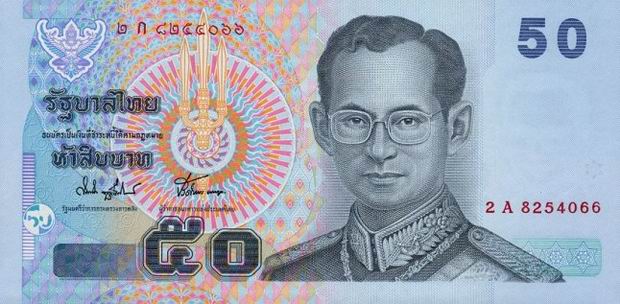One of the first questions English teachers ask before they move to Thailand is how much money they should bring with them. Most teachers wait until they get to Thailand to find an English teaching job, as that’s how the best jobs are found.
However, this also means they will likely have a week or two before they find a teaching job, then have to work a month before pay day. In the 10 years I have lived in Thailand, the amount of money English teachers need to bring with them really hasn’t changed that much. Nor has what they will spend it on.
Rent and Rental Deposit – Depending on what type of apartment or house you want to live in (a studio, a one-bedroom, a townhouse or something even larger), the amount of money you’ll need for rent will vary. Don’t forget though, you’ll technically need to bring enough money with you for two months rent, as it will be at least 5-6 weeks after you arrive in Thailand before you’ll get a pay check.
On top of the rent, you will also need two months’ rent as a deposit (every apartment or landlord asks for this). So, for instance, if you find an apartment that rents for 8,000 baht a month (around $242), you will need $484 for your first two months rent, plus $484 deposit (refundable when you move out of the apartment).
With most teachers paying rents between 6,000 baht a month ($180) to 20,000 baht ($600), that means you will need at least $720-$2,400 just for your first two months rent plus deposit.

Apartment Set-up – Even if you don’t set up much in your apartment at first, you’ll a set of sheets, pillowcases, a kettle to heat water for coffee and towels etc. Budget at least $150 (4,950 baht) for the first two months.
Toiletries and Bathroom Items – As you’re going to be interviewing for teaching jobs, you’ll need items like soap, toothpaste, toilet paper, bathroom cleaning supplies so you’re clean and presentable. You should be able to get away with $50 (1,650 baht) for the first two months and still get what you need.
Food – Consider you’ll need to buy staples like coffee, bread, milk, sugar plus just survive with groceries or eating out for almost two months. Even though food is cheap in Thailand, you’ll still need at least $300 (9,900 baht) to get you through two months before you get your first pay check.
Expenses For Job Interviews – Once you arrive in Thailand, you have to start interviewing. With the cost of photographs (every school requires a passport sized photo on your resume or at the interview), photocopying resumes, transportation costs to job interviews and any incidentals, you’ll need at least $150 (4,950 baht) to be able to comfortably look for a teaching job.

Visa and Work Permit – Many schools don’t pay for the cost of a non-immigrant visa and a work permit. As you’ll have to pay for them, this adds another 6,000 baht ($180) to your budget.
Transportation Costs and Miscellaneous Costs for Your Teaching Job – Don’t forget, once you get your first teaching job in Thailand, you still need to get there for a month before you get paid.
You should have enough money for a month of transportation as well as money for anything you may need to buy for school (some schools require specific uniforms, shoes, shirts etc). Transportation is cheap, particularly if you can take buses to and from work.
Budget at least $200 (6,600 baht) for transportation plus unforeseen expenses connected to your job. That should get you through till the end of month two.

Entertainment – You have just arrived in a new country where there is so much to see and do it’s hard to choose. You don’t want to spend your first two months seeing everything going on around you and not be able to do any of it.
Entertainment expenses can be as much as you want them to be, but you should bring at least $300 (9,900 baht) with you to Thailand to cover some form of entertainment for your first two months in country, even if its just a latte here or there and a movie.
As you will see, just for rent and apartment set up, job expenses, food and toiletries, visa, work permit, entertainment and transportation, you shouldn’t bring less than $2,330 plus an extra $500 for any unforeseen expenses.
Any teacher coming to Thailand to teach English therefore, should be able to comfortably survive in the Land of Smiles for two months on around $3,000 (100,000 baht).
After that, once you have your first pay check, you can figure out your budget a little more accurately. The main thing is, don’t arrive in Thailand like some would-be teachers do, with less than $500 and then seem really surprised when they can’t afford to eat or pay the rent.

